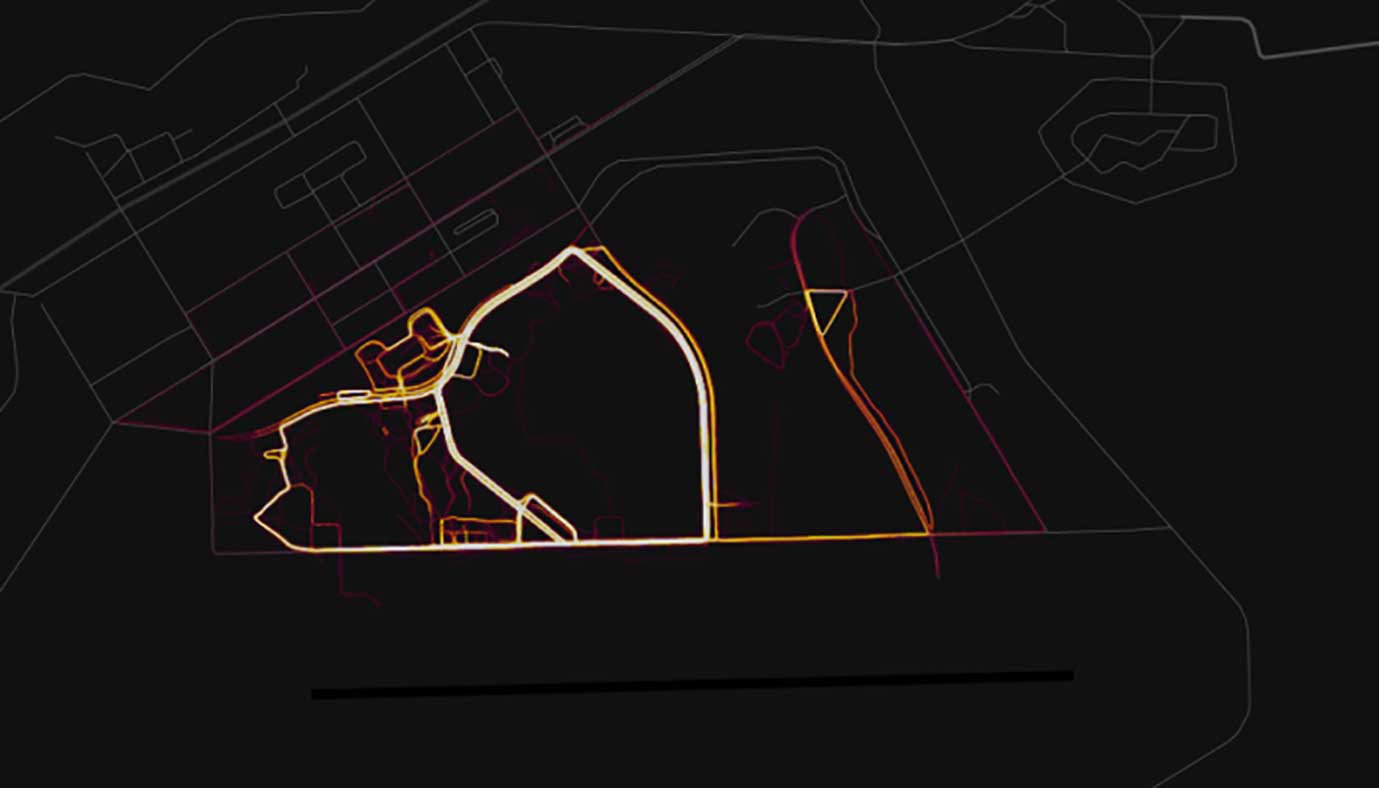Strava fitness app ‘reveals US military bases’
Heatmap pinpoints 'sensitive locations' around the world

A free daily email with the biggest news stories of the day – and the best features from TheWeek.com
You are now subscribed
Your newsletter sign-up was successful
Data published online showing the whereabouts of people who have been using Strava fitness devices appears to have revealed sensitive information about the location and movements of members of the US military.
The map, which had been available online since November last year, used data uploaded by users to create a heatmap of jogging and cycling routes.
Australian student Nathan Ruser, who revealed the issue on Saturday, said the map “looks very pretty, but not amazing for Op-Sec [Operational Security]. US Bases are clearly identifiable and mappable.”
The Week
Escape your echo chamber. Get the facts behind the news, plus analysis from multiple perspectives.

Sign up for The Week's Free Newsletters
From our morning news briefing to a weekly Good News Newsletter, get the best of The Week delivered directly to your inbox.
From our morning news briefing to a weekly Good News Newsletter, get the best of The Week delivered directly to your inbox.
The Washington Post reports that cities in the US and Europe show up as “blazes of light” because of the amount of activity, but in warzones such as Iraq and Syria the map “becomes almost entirely dark — except for scattered pinpricks of activity” which align with known US bases, and other “potentially sensitive sites”.
Zooming in on one of the US bases “clearly reveals its internal layout, as mapped out by the tracked jogging routes of numerous soldiers”, says The Guardian.
The heatmap also appears to highlight RAF Mount Pleasant in the Falkland Islands and a base used by French soliders in Niger.
In a statement, Strava said that the data it used to create the map had been anonymised, and "excludes activities that have been marked as private and user-defined privacy zones." But this morning the map appears to have been taken offline.
A free daily email with the biggest news stories of the day – and the best features from TheWeek.com
-
 9 products to jazz up your letters and cards
9 products to jazz up your letters and cardsThe Week Recommends Get the write stuff
-
 AI surgical tools might be injuring patients
AI surgical tools might be injuring patientsUnder the Radar More than 1,300 AI-assisted medical devices have FDA approval
-
 ‘Zero trimester’ influencers believe a healthy pregnancy is a choice
‘Zero trimester’ influencers believe a healthy pregnancy is a choiceThe Explainer Is prepping during the preconception period the answer for hopeful couples?
-
 Epstein files topple law CEO, roil UK government
Epstein files topple law CEO, roil UK governmentSpeed Read Peter Mandelson, Britain’s former ambassador to the US, is caught up in the scandal
-
 Iran and US prepare to meet after skirmishes
Iran and US prepare to meet after skirmishesSpeed Read The incident comes amid heightened tensions in the Middle East
-
 Israel retrieves final hostage’s body from Gaza
Israel retrieves final hostage’s body from GazaSpeed Read The 24-year-old police officer was killed during the initial Hamas attack
-
 China’s Xi targets top general in growing purge
China’s Xi targets top general in growing purgeSpeed Read Zhang Youxia is being investigated over ‘grave violations’ of the law
-
 Panama and Canada are negotiating over a crucial copper mine
Panama and Canada are negotiating over a crucial copper mineIn the Spotlight Panama is set to make a final decision on the mine this summer
-
 Why Greenland’s natural resources are nearly impossible to mine
Why Greenland’s natural resources are nearly impossible to mineThe Explainer The country’s natural landscape makes the task extremely difficult
-
 Iran cuts internet as protests escalate
Iran cuts internet as protests escalateSpeed Reada Government buildings across the country have been set on fire
-
 US nabs ‘shadow’ tanker claimed by Russia
US nabs ‘shadow’ tanker claimed by RussiaSpeed Read The ship was one of two vessels seized by the US military